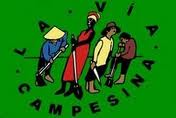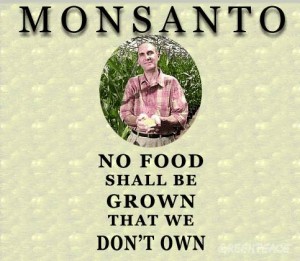 By. Bob St. Peter, Food for Maine’s Future and FFD board member
By. Bob St. Peter, Food for Maine’s Future and FFD board member
Today, April 17, 2011, marks the 15th anniversary of the death of 19 Brazilian landless workers who were killed for using vacant land to grow their food. It’s not a happy anniversary, but the story behind it is one of hope. The 19 who died that day on a dirt road in Brazil at the hands of federal military police, and the three who died later from their wounds, were members of the Landless Workers Movement (MST). The MST is the largest social movement in Brazil and one of the most effective grassroots organizations in the world. Comprised of and led by poor urban and rural Brazilians, many of whom are displaced farmers and peasants, the MST has helped their members access land for growing food, for building schools and health care clinics, and for creating community centers for the resettlement of rural Brazil by working people. Their inspiring story can be found at www.mstbrazil.org.
Food for Maine’s Future is proud to share allegiance with the MST through the global movement of small and medium-sized food producers, La Via Campesina.
In Maine, as in Brazil, small farmers, peasants, and rural people are working to put communities back together that have been broken and displaced by the loss of local industries. Much of the farming, forestry, and fishing industries in Maine have been dismantled and consolidated (or are in the process of being consolidated) into a small number of hands. The impact of this economic restructuring — from one of local production for local consumption and public benefit to one that largely extracts local resources for export and private profit — can be viewed along country roads throughout the state. What happened to the nearly 11,000 farms and farm families that have disappeared from Maine’s landscape since 1960?
We also see the impact during our town meetings when it’s clear there isn’t enough money to run our schools we way we would like. Or fulfill the growing number of requests for support from not-for-profit organizations struggling to provide support services to our neighbors in need.
The truly frustrating part is not that we don’t have enough money in our communities to ensure everyone a good, decent life. It’s more that we send away too much of what we have. Just as there is more than enough land in Brazil and Maine for everyone who desires to make their lives as farmers and rural people. But car insurance, health insurance, mortgages, food budgets, electricity, interest, student loans…if we could keep half of all the money that is siphoned off every day into out-of-state and out-of-country banks our rural communities would be a heck of a lot better off.
Wendell Berry wrote that the place to start building durable local economies is through food. He wrote in his essay Conserving Communities:
“Such a start is attractive because it does not have to be big or costly, it requires nobodys permission, and it can ultimately involve everybody. It does not require us to beg for mercy from our exploiters or to look for help where consistently we have failed to find it. By “local food economy” I mean simply an economy in which local consumers buy as much of their food as possible from local producers and in which local producers produce as much as they can for the local market.”
Maine once had durable local economies, replaced now by the global marketplace, absentee owners, and our near total dependency. Pointing fingers and demanding accountability is easy, rebuilding the food production infrastructure of rural Maine is going to be a challenge. It requires pathfinding people producing a diverse array of food locally. It also requires a diversity of people at all levels of decision making.
Back in January, Food for Maine’s Future delivered a letter to the 125th Maine Legislature and the office of Gov. Paul LePage asking for protections for Maine’s remaining family farms. We asked the State of Maine to look into how monopoly control by agribusiness corporations is hurting Maine farms of all sizes. Nearly 200 individuals, small farms and businesses, and community organizations from around Maine and the U.S. signed on to the letter in support. We received no response to our letter from either the Legislative leadership or the Governor’s office.
In light of recent passage of the landmark Local Food and Community Self-Governance Ordinance in three Maine towns, Food for Maine’s Future is circulating this Open Letter in Support of Maine Family Farms a second time for additional signatures.** This request for your support comes on the heels of the State of Maine’s official response to passage of the Local Food and Community Self-Governance Ordinance.
In a letter to the Town of Blue Hill dated April 6, the Maine Department of Agriculture declared the Local Food and Community Self-Governance Ordinance to be illegal, citing it as a violation of the State’s powers to preempt local decision making. The letter from Commissioner Walter Whitcomb states that “persons who fail to comply will be subject to enforcement, including the removal from sale of products from unlicensed sources and/or the imposition of fines.”
While many see the Local Food and Community Self-Governance Ordinance as an important building block for the economic and social well-being of rural Maine, the official position of the State of Maine is that it is a threat to public health and order.
Rather than policing face-to-face food sales and arguing over who gets to make the rules for our towns, wouldn’t we be better off using public dollars to resolve the underlying problems that have created the need for such ordinances in the first place?
Please take a moment to add your name to the Open Letter in Support of Maine Family Farms. Tell the Legislature and Governor that farm foreclosures, monopoly control of our food supply, and the intimidation of small-scale food producers by state and federal authorities are simply unacceptable.
The Open Letter in Support of Maine Family Farms will again be delivered to the Legislature and Governor’s office before the end of the legislative session, June 17. Your attendance is encouraged. Notice of the date and time will be forthcoming.
And check out these resources about the growing movement for food sovereignty in Maine and around the world.
April 17th International Day of Peasant Struggles
www.viacampesina.org
Local Food Local Rules
www.localfoodlocalrules.wordpress.com
Food for Maine’s Future
www.savingseeds.wordpress.com
Globalize the struggle!
Globalize hope!





